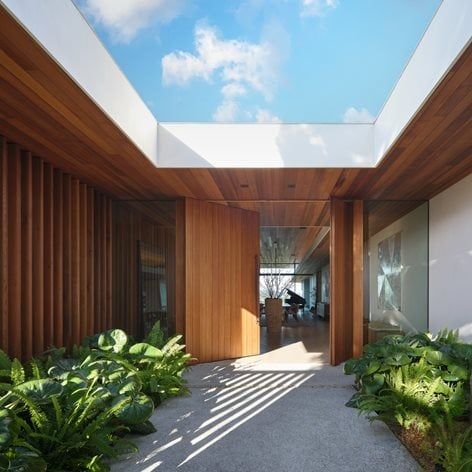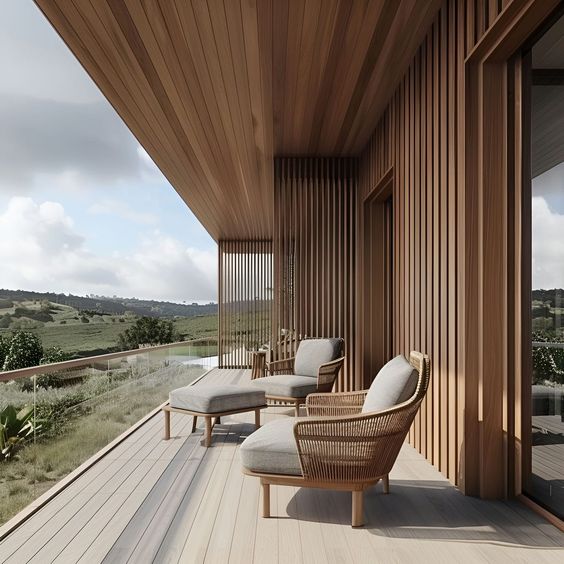Plywood, a versatile and cost-effective building material, has become a staple in modern construction. Its unique properties make it an ideal choice for a wide range of applications, from structural components to decorative elements. Here are some of the key benefits of using plywood in modern construction:
1. Strength and Durability

High Strength-to-Weight Ratio: Plywood is engineered by bonding several thin layers of wood veneer together with adhesives, with each layer’s grain direction perpendicular to the adjacent layers. This cross-graining technique gives plywood exceptional strength and resistance to cracking, warping, and shrinking.
Structural Integrity: Due to its robust composition, plywood is often used in structural applications such as flooring, roofing, and wall sheathing. It provides a stable and reliable base that can withstand heavy loads and environmental stresses.
2. Versatility and Flexibility

Wide Range of Applications: Plywood is available in various grades, thicknesses, and sizes, making it suitable for numerous construction purposes, including subfloors, formwork, cabinetry, and furniture making. Its flexibility allows it to be easily cut, shaped, and joined to fit specific project requirements.
Design Flexibility: With options ranging from smooth surfaces suitable for painting and finishing to textured varieties that add a rustic look, plywood can be tailored to meet aesthetic needs. It can be veneered with different wood species, laminated, or coated to achieve the desired appearance and performance.
3. Cost-Effectiveness
Affordable Material: Plywood is generally more affordable than solid wood, making it an economical choice for builders and homeowners. Its production process maximizes the use of wood resources, reducing waste and overall material costs.
Long-Term Savings: The durability and strength of plywood contribute to lower maintenance and repair costs over time, providing significant long-term savings.
4. Environmental Sustainability
Efficient Use of Resources: Plywood production utilizes smaller, fast-growing trees and maximizes wood use by peeling veneers from logs. This efficient use of timber helps in conserving forests and reducing the environmental impact.
Eco-Friendly Options: Many plywood products are now available with eco-friendly certifications, indicating that they are made from sustainably sourced wood and low-emission adhesives. Choosing certified plywood supports sustainable forestry practices and reduces the carbon footprint of construction projects.
5. Ease of Installation
Lightweight and Manageable: Plywood’s relatively lightweight nature compared to solid wood makes it easier to handle, transport, and install. This ease of use speeds up the construction process and reduces labor costs.
Workability: Plywood can be easily nailed, screwed, glued, and stapled, accommodating various construction techniques. It holds fasteners well without splitting, ensuring secure and lasting connections.
6. Moisture Resistance
Water-Resistant Varieties: While standard plywood has moderate moisture resistance, specialized types like marine-grade plywood are designed to withstand high humidity and water exposure. These are ideal for use in areas prone to moisture, such as bathrooms, kitchens, and exterior applications.
Dimensional Stability: Plywood’s cross-laminated structure helps it maintain its shape and dimensions even when exposed to changes in humidity and temperature, reducing the risk of warping and swelling.
7. Fire Resistance
Fire-Retardant Treatments: Fire-resistant plywood is available for projects requiring enhanced safety measures. Treated with fire-retardant chemicals, this type of plywood can slow the spread of flames and provide valuable extra time during emergencies.
8. Acoustic and Thermal Insulation
Sound Insulation: Plywood panels can be used in soundproofing applications, helping to reduce noise transmission between rooms or from external sources. This makes it a valuable material in residential and commercial buildings where noise control is essential.
Thermal Insulation: Plywood also offers some degree of thermal insulation, contributing to the overall energy efficiency of buildings. It can help maintain indoor temperatures, reducing the need for heating and cooling.
Final Thoughts
Plywood’s combination of strength, versatility, affordability, and sustainability makes it an indispensable material in modern construction. Whether used for structural purposes, interior design, or specialized applications, plywood delivers reliable performance and aesthetic appeal. By incorporating plywood into construction projects, builders can achieve durable, cost-effective, and environmentally friendly results, making it a smart choice for contemporary building needs.